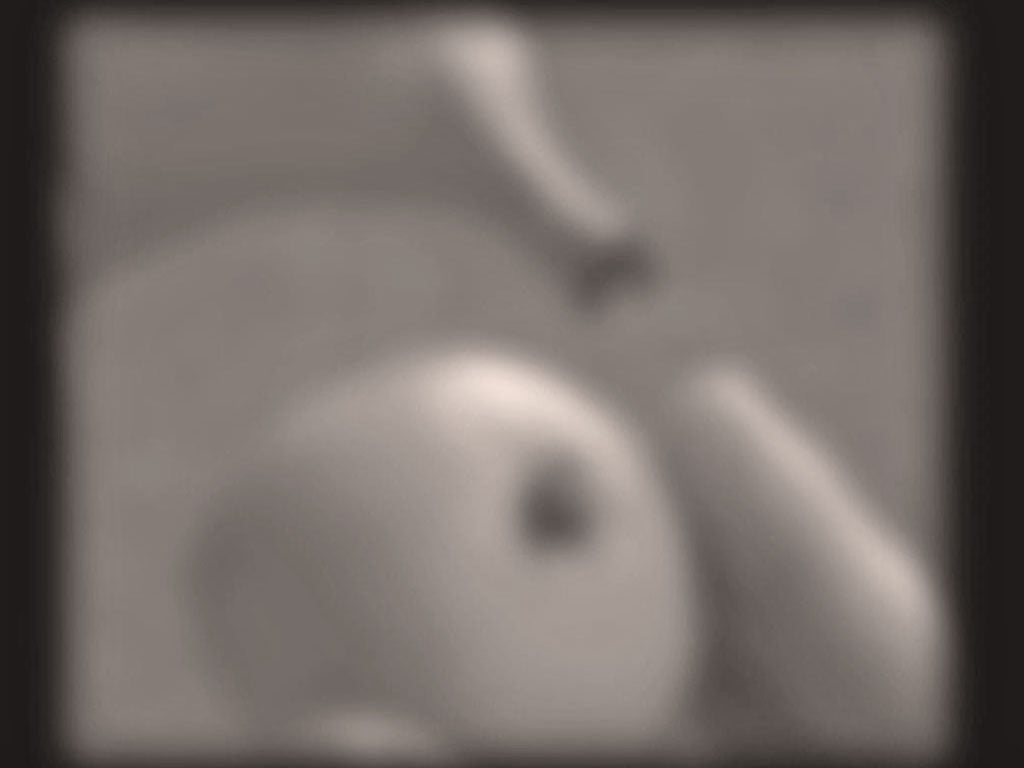'Bionic eye' operation helps blind man to see
Microchip implant restores limited vision to man who lost his sight 25 years ago

Three weeks ago, Chris James, who has been blind for 20 years, saw a sudden pulsating light in his left eye, like a camera bulb or a lighting flash.
Doctors had just switched on a wafer-thin, 3mm microchip implanted at the back of his eye.
Now he can distinguish shapes and might, in time, even be able to recognise faces.
Mr James' experimental “bionic eye” reacts to light sending an electronic signal that is picked by the optic nerve and processed by the brain into an image. The treatment could partially restore the sight of thousands of sufferers of a condition called retinitis pigmentosa, which causes the photoreceptor cells at the back of the eye to deteriorate.
“As soon as I had this flash in my eye, it confirmed that my optic nerves are functioning properly which was a really promising sign,” Mr James said. “It was like someone taking a photo with a flashbulb, a pulsating light, I recognised it instantly.”
In March Mr James, a 54-year-old council worker from Wroughton, Wiltshire, underwent an eight hour operation at the John Radcliffe Hospital in Oxford to have the chip implanted. A second patient, Robin Millar, 60, a music producer and DJ, had the surgery at Kings College Hospital in London, as part of the first UK clinical trial of the microchip, which has been developed by German company Retina Implant AG.
The surgery involves inserting a fine cable through the layers of the eyeball to place the chip on an area of the retina the size of a pinhead. The chip is connected to a power source implanted under the skin behind the ear.
“What makes this unique is that all functions of the retina are integrated into the chip,” said Professor Robert McLaren, professor of ophthalmology at the University of Oxford, who carried out the first operation, assisted by Mr Tim Jackson, a consultant ophthalmic surgeon at King's College Hospital in London.
“It has 1,500 light sensing diodes and small electrodes that stimulate the overlying nerves to create a pixellated image. Apart from a hearing aid-like device behind the ear, you would not know a patient had one implanted.“
The patients only have a small range of black and white vision: a rectangle about the size of a CD case held at arm’s length. At present Mr James can only make out shapes and lines close up and it could takes weeks for the brain to begin to accurately interpret the signals received from the microchip.
“It's obviously early days but it's encouraging that I am already able to detect light where previously this would have not been possible for me,” he said. “I'm still getting used to the feedback the chip provides and it will take some time to make sense of this,” Mr James said.
A Finnish man became the first person to receive the experimental implant in 2010. If successful, the UK trial could establish the electronic retina as a standard treatment for patients with retinitis pigmentosa, an inherited condition that affects 25,000 British families. In the future it could benefit sufferers of age-related macular degeneration. The treatment is not, however, suitable for diseases that affect the optic nerve, such as glaucoma.
Mr Millar, who began to lose his sight at the age of eight and has been totally blind for 25 years, said that since having the chip implanted, he has dreamed in colour for the first time in 35 years.
“I dreamed in bright greens, oranges, turquoises and blues,” he said. “Parts of the brain that have been dormant for 35 years had come to life again thanks to the retina implant. We are like the people taking the very first photographs. We are at the beginning of the path that will restore sight.”
Join our commenting forum
Join thought-provoking conversations, follow other Independent readers and see their replies
Comments
Bookmark popover
Removed from bookmarks